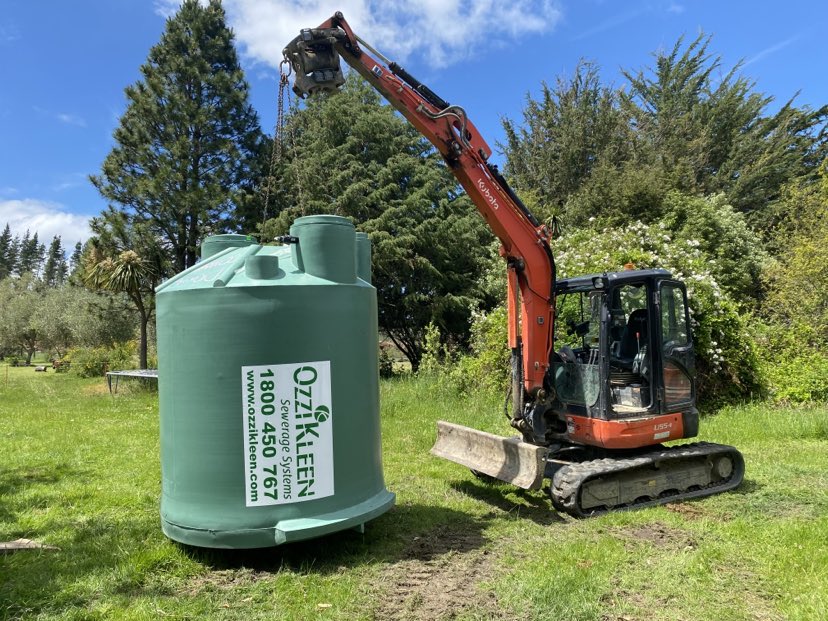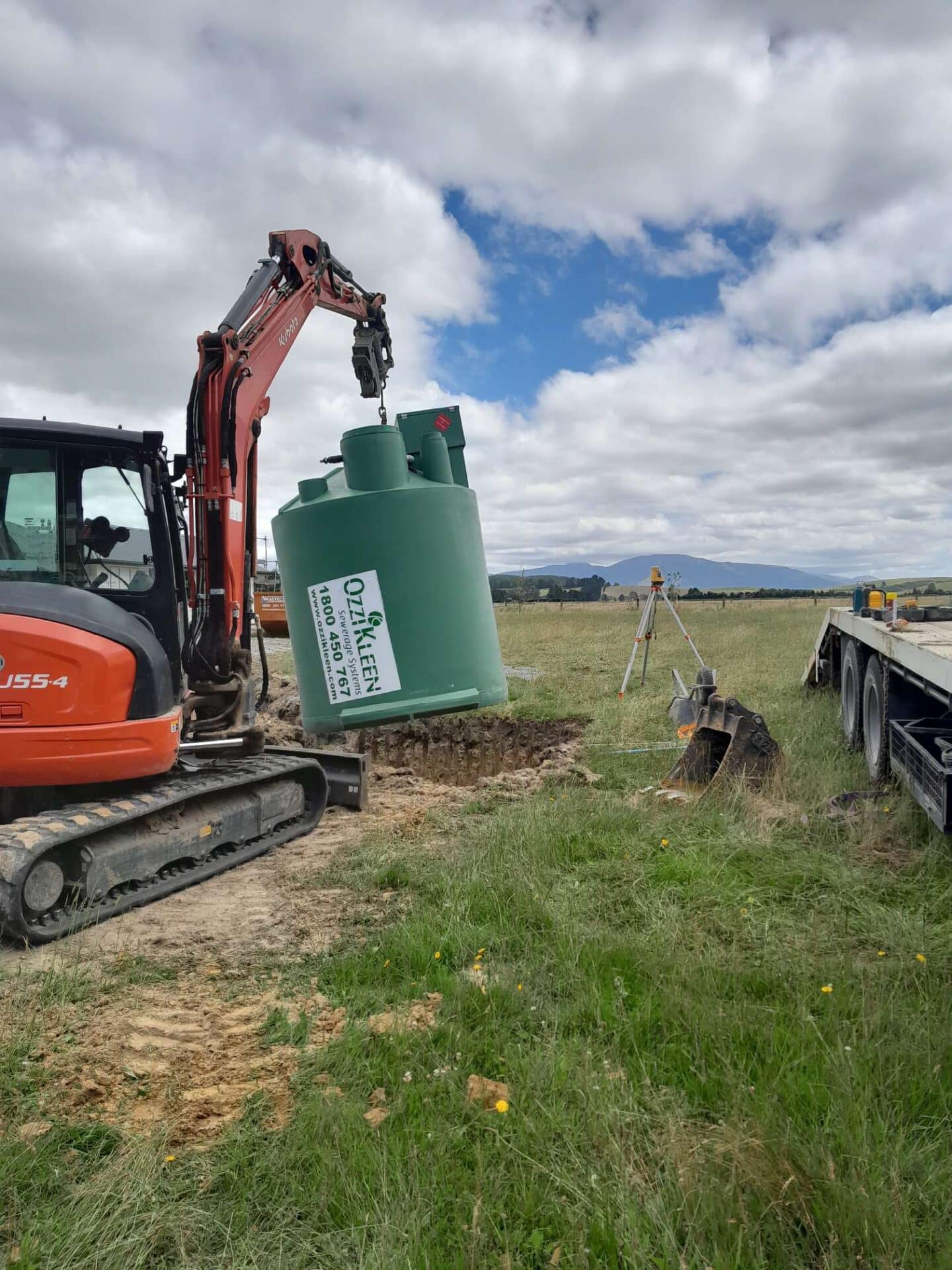With vast rural landscapes and expanding suburban developments, many new builds must rely on septic systems. Understanding the process of installing septic tanks in Christchurch, along with the associated costs and regulations, is crucial for homeowners and developers alike.
As new developments continue to rise in and around Christchurch, the necessity for effective waste management systems becomes more apparent. For homes that aren’t connected to a central sewage system, installing a septic tank is essential.
But what exactly is a septic tank? Septic tanks are underground containers designed to treat and manage wastewater from households. They are vital for homes in rural and semi-rural areas where there is no access to municipal sewer services.
This article aims to provide an in-depth guide on what to expect when planning for septic tanks in Christchurch, from regulatory requirements to long-term maintenance.
Understanding Septic Tank Regulations in Christchurch
When it comes to installing septic tanks in Christchurch, strict regulations govern the process to ensure environmental safety and public health. Both the Christchurch City Council and Environment Canterbury (ECan) oversee the rules and guidelines around septic systems, and it’s important to adhere to these.
Council Regulations and Building Codes
Christchurch City Council has specific regulations concerning the location, design, and construction of septic tanks. These regulations are designed to protect water quality, prevent contamination, and ensure that septic systems are safely managed. Septic tanks must be installed by a certified professional to meet these standards.
Resource Consents
In some cases, installing a septic tank will require a resource consent. If the property is located in an environmentally sensitive area, such as near waterways or wetlands, a resource consent may be necessary. Obtaining this consent involves providing detailed plans of the septic system and ensuring compliance with local environmental laws. Homeowners can consult the Christchurch City Council or Environment Canterbury to determine if a consent is needed and how to apply for one.
Compliance with NZ Standards
Septic tanks in Christchurch must meet the New Zealand Building Code requirements, particularly NZS 1546.1, which covers the design and installation of on-site wastewater systems. These standards are in place to ensure systems operate efficiently, protect the environment, and safeguard public health. Compliance is essential not only to meet legal obligations but also to prevent long-term issues that could arise from a poorly designed or installed system.
Zoning Considerations
Zoning laws also play a role in septic tank installation. Christchurch has areas where septic tanks are allowed or restricted based on zoning designations. Rural properties are typically more conducive to septic systems, while suburban areas may have tighter restrictions or encourage connection to centralised systems. Homeowners must also consider proximity to water sources when planning septic installations, as this can influence the system’s design and approval.
Choosing the Right Septic Tank for Your New Build
Selecting the right septic tank for your new build is more than a simple decision; it requires careful consideration of several factors.
Assessing the Size and Type
The size of the septic tank is determined by the size of the household and the expected volume of wastewater. For example, a larger family home with three or more bedrooms will need a bigger tank to handle the increased usage. It’s important to strike a balance between capacity and efficiency—an undersized tank may require more frequent pumping, while an oversized tank could lead to unnecessary costs.
In Christchurch, homeowners can choose from various types of septic systems. Standard septic tanks, which rely on gravity, are common, but advanced systems like aerated treatment systems (ATS) may offer better performance. ATS treat wastewater more thoroughly before releasing it into the ground, which may be ideal for homes in Christchurch’s environmentally sensitive areas.
Soil and Site Evaluation
Site evaluation is an essential step in the installation process. Christchurch’s diverse soil types, including areas prone to liquefaction, can significantly affect how well a septic system will function. Soil permeability tests are necessary to determine how quickly the soil absorbs liquid. If the soil is too porous or impermeable, it can lead to system failures or environmental hazards.
Homes built in Christchurch’s earthquake-prone areas may need additional design considerations, such as reinforced tanks or alternative drainfield designs, to ensure long-term durability.

Installation Process for Septic Tanks in Christchurch
Site Inspection and Soil Testing
The first step in installing septic tanks in Christchurch involves a comprehensive site inspection and soil testing. Contractors will assess the soil’s absorption rate through percolation tests, which help determine the appropriate location and design for the septic system. This step is particularly critical in Christchurch, where the risk of earthquakes and liquefaction affects soil stability.
Septic System Design
Once the site is evaluated, the septic system design can begin. The design must account for the location of the tank, the drainfield, and the distance from the home, nearby wells, or water sources. Christchurch homes may also require specialised designs to cope with natural risks like earthquakes or high water tables. Professional septic designers will ensure the system is built to comply with local codes while maximising efficiency.
Installation Timeline
Typically, the installation of septic tanks in Christchurch takes about one to two weeks, depending on the complexity of the system and site conditions. Weather conditions, such as heavy rain, can delay the process, as well as availability of contractors. Homeowners should plan ahead and work with reputable local professionals to ensure smooth installation.
Costs Involved with Installing a Septic Tank
Initial Costs
The initial costs of installing septic tanks in Christchurch vary depending on the type of system, the size, and site-specific conditions. On average, homeowners can expect to pay between $10,000 and $20,000 for a complete system, including the tank, drainfield, permits, and labour. Additional costs may arise if the site requires more preparation due to challenging soil conditions.
Ongoing Maintenance Costs
Regular maintenance is essential to keep septic tanks functioning properly. Homeowners in Christchurch should expect to have their septic tanks pumped every three to five years, depending on the size of the tank and the household’s usage. The cost of pumping services typically ranges between $300 and $500. Neglecting maintenance can lead to costly repairs, so it’s crucial to budget for ongoing care.
Potential Extra Costs
In Christchurch’s earthquake-prone regions, there may be additional costs for reinforcing septic tanks or installing special earthquake-resistant designs. Homeowners may also face higher installation costs if their property requires advanced systems like aerated treatment units.
Long-Term Considerations for Septic Tanks in Christchurch
Maintaining Your Septic System
Proper maintenance ensures septic tanks in Christchurch function efficiently for years. Homeowners should avoid flushing harmful substances like grease, oils, and non-biodegradable materials, which can clog the system. Regular inspections and timely pumping will extend the system’s lifespan and prevent costly repairs.
Potential Issues
Common issues with septic tanks in Christchurch include blockages, overflow, and drainfield failure. These problems are often linked to poor maintenance, excessive water usage, or unsuitable soil conditions. Christchurch’s unique geological factors, including high water tables and liquefaction risks, can also contribute to system failures.
System Lifespan and When to Upgrade
A well-maintained septic tank can last 20 to 30 years. However, over time, the system may deteriorate due to natural wear and tear, environmental factors, or increased household demand. Homeowners should consider upgrading or replacing their systems if they notice frequent blockages, slow drainage, or unpleasant odours.
The Benefits of Installing a Septic Tank in New Builds
Cost-Effective Solution
Septic tanks in Christchurch offer a cost-effective alternative to connecting to municipal sewage systems, especially for rural and semi-rural homes. While the initial installation cost may be significant, the long-term savings on monthly sewage fees and maintenance costs often outweigh the upfront expense.
Independence from Council Infrastructure
Installing a septic tank provides homeowners with greater independence from council-run sewage infrastructure. This is particularly valuable in Christchurch, where earthquake damage or infrastructure failures could disrupt sewage services. A well-maintained septic system ensures continuous waste management even in emergencies.
Environmental Benefits
Septic systems, when properly managed, can offer environmental benefits by reducing the load on municipal treatment facilities and encouraging water conservation. In Christchurch, where natural water sources are valuable, having a sustainable septic system can contribute to preserving the environment and protecting groundwater.
Conclusion
Installing septic tanks in Christchurch for new builds is a significant but necessary investment for homes not connected to the central sewage system. From understanding local regulations to choosing the right system and planning for long-term maintenance, homeowners and developers must be well-informed about the process. Septic tanks offer a cost-effective, independent, and environmentally friendly solution for waste management in Christchurch’s rural and suburban areas.
For anyone planning a new build in Christchurch, consulting with local professionals and adhering to council regulations will ensure a smooth installation process and long-term success. Investing in a quality septic system now will provide peace of mind and efficient waste management for years to come.
